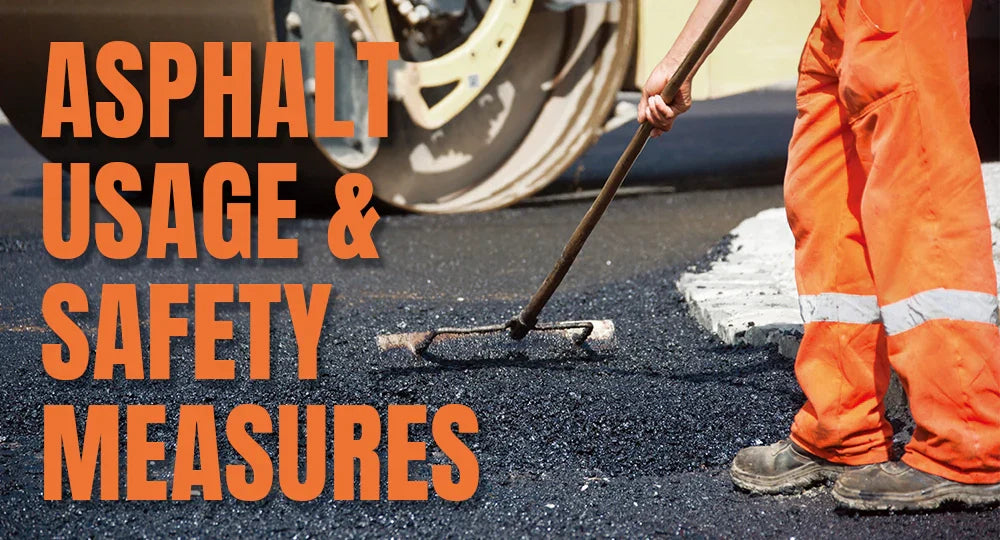What's Asphalt and Areas of Applications
Asphalt, a viscous black residue, is a byproduct of the petroleum refining process. It exhibits high viscosity and remains in a liquid or semi-solid state at normal temperatures. Its primary applications include road paving, building waterproofing, and roof covering, etc.
Hazards of Working with Asphalt
Engaging in asphalt work entails certain risks. Skin contact with asphalt may lead to skin dryness, cracking, and chemical dermatitis. During the heating and application process, harmful fumes may be released, potentially causing dizziness, nausea, headaches, and even respiratory ailments. Moreover, asphalt is prone to liquefaction and combustion at high temperatures, posing burn hazards upon direct contact with hot asphalt.
Personal Protective Equipment for Asphalt Workers
To eliminate potential hazards, workers can take a set of personal protective measures:
- Wear appropriate personal protective equipment such as protective clothing, gloves, and safety shoes.
- Use suitable respiratory protection devices like face masks.
- Avoid direct contact with asphalt, especially hot asphalt.
- Maintain well-ventilated work areas to prevent the accumulation of harmful gases.
- Implement fire prevention measures in high-temperature work environments to mitigate fire and explosion risks.
- Train personnel to recognize potential hazards and follow safe operating procedures.
- Don't eat or drink anything around asphalt. Wash your hands properly before eating, and eat in a designated area away from the asphalt mixing and construction site.
Emergency Response Measures
In the event of accidents, workers must be equipped with emergency response protocols, including fire suppression and first aid procedures. Additionally, workers should be familiar with signs and symptoms of asphalt inhalation or exposure for timely detection and treatment.
These safety measures aim to protect workers from potential hazards associated with asphalt work, promoting a secure and healthy working environment.



Share:
Sanding Wood Tips for Beginners
Carpentry Work: Types of Wood and Their Uses